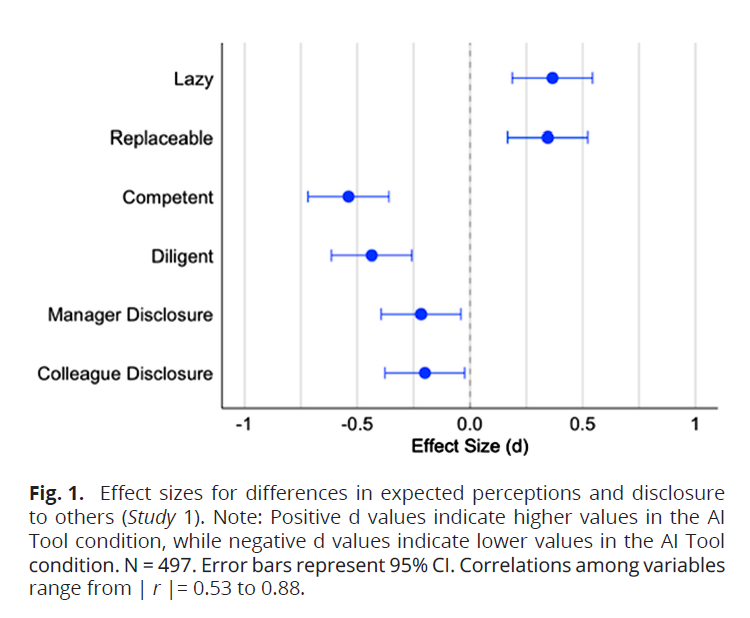Summary: New research from Duke University uncovers the social ramifications of adopting AI tools in the workplace, revealing a negative bias against employees who utilize these technologies. While generative AI can enhance productivity, it may inadvertently harm professional reputations. This article delves into the findings, exploring both the benefits and social costs of AI use in professional settings.
Unpacking the Social Impact of AI in the Workplace
Recent research from Duke University has sparked a critical discussion around the use of generative AI tools, highlighting how they can inadvertently affect professional reputation. While tools like ChatGPT, Claude, and Gemini promise increased productivity, they also carry the risk of social stigma for users.
Published in the Proceedings of the National Academy of Sciences (PNAS), the study reveals significant biases against employees who employ AI tools. The research team, consisting of Dr. Jessica A. Reif, Dr. Richard P. Larrick, and Dr. Jack B. Soll from Duke’s Fuqua School of Business, explores the complexities of AI integration in professional environments.
Key Findings: The Dilemma of AI Utilization
The Duke researchers conducted four experiments with over 4,400 participants to assess perceptions of individuals using AI tools in a professional context. Their findings are contained in the paper titled “Evidence of a social evaluation penalty for using AI.” The results showed a marked pattern of bias, regardless of the demographics of either the user or the evaluators. Specifically, employees using AI were often perceived as less competent and less motivated than their non-AI counterparts.

Fig. 1 from the paper “Evidence of a social evaluation penalty for using AI.“Credit: Reif et al.
Demographic Independence of AI Bias
What is particularly alarming is that this social stigma is not confined to specific demographic groups, as confirmed by the study. The authors stated, “None of the target demographic attributes influence the effect of receiving AI help on perceptions of laziness, diligence, competence, independence, or self-assuredness.” This universal pattern underscores a pervasive bias against AI use in workplace scenarios.
The Hidden Costs of AI Integration
The first experimental stage involved participants envisioning themselves using either an AI tool or a traditional dashboard creation tool. Results indicated that AI tool users were expected to face harsher judgments regarding their work ethic and skills, being perceived as lazier and less competent. Moreover, there was a significant reluctance among participants to disclose their use of AI to coworkers or managers.
The second experiment validated these concerns, illustrating that individuals who utilized AI for assistance were consistently rated lower on essential professional traits compared to those receiving help from traditional methods or no assistance at all.
Conclusion: Finding the Balance
The implications of this research serve as a cautionary tale for professionals contemplating the adoption of AI tools. While these technologies may improve workflow and productivity, they also come with hidden social costs that could impact one’s professional image and relationships.
FAQs
- What are generative AI tools?
Generative AI tools are technologies that create text, images, or other content based on prompts from users. Examples include ChatGPT and Stable Diffusion. - How can I mitigate the social stigma of using AI in my job?
Consider balancing AI use with traditional methods and communicate openly about your processes to retain transparency with colleagues. - Are these biases consistent across all industries?
While the study indicates a generalizable phenomenon, the impact of AI may vary across different sectors.


